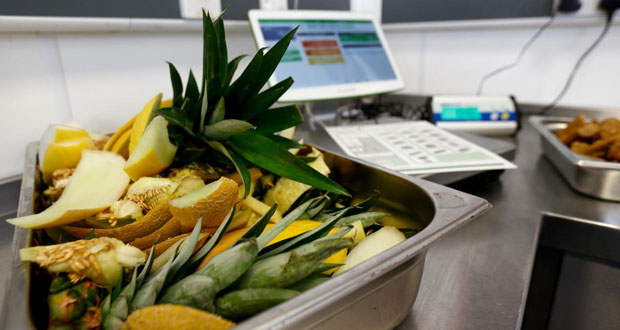To mark the United Nations second annual International Day of Awareness on Food Loss and Waste, Sodexo has provided an update on its food waste reduction programme, WasteWatch powered by LeanPath, which confirms this has now been deployed at over 200 sites across the UK.
Earlier this year Sodexo pledged to cut food waste by 50 per cent by 2025 – putting it ahead of the UN’s sustainable development goal to halve food waste globally by 2030.
Reducing food loss and waste contributes significantly to the reduction of greenhouse gas emissions. Sodexo says its dedicated focus on food waste forms part of the organisation’s commitment to reducing its carbon emissions by 34 per cent by 2025 (a science-based validated target by SBTi), supporting its journey to a net zero world.
Today’s update by Sodexo shows significant impact has been made, including:
- Over 280 tonnes of food waste have been prevented in the UK – the equivalent of over 500,000 meals
- Data from client sites confirm that the programme has been proven to cut food waste by an average 50 per cent where it is used
- In a 12-month period, 229 sites have been deployed
- There has been an acceleration of deployments since the UK lockdown was lifted, with 40 new sites currently undergoing installation, including a number of sports stadia, schools and healthcare establishments
- WasteWatch has enabled Sodexo and its clients to cut over 2,000 metric tonnes of carbon emissions
WasteWatch by LeanPath achieves all this says Sodexo by rapidly capturing food waste data and giving clear insights into what is being wasted and why. Teams can then bring in operational and behavioural changes to help end avoidable food waste, whether generated in the kitchen or by consumers.
As a business which, prior to the pandemic, was producing in excess of one million meals a day in the UK and Ireland, Sodexo has long been committed to cutting food waste as part of its Better Tomorrow 2025 global strategy. A commitment that was reaffirmed in its Social Impact Pledge 2021 earlier this year.
Claire Atkins Morris, Director Corporate Responsibility for the UK and Ireland, said: “The goal of the UN’s International Day of Awareness of Food Loss and Waste is to showcase the importance of understanding the impact of food loss and waste and a call to action. As one of the world’s leading food services providers, we have a critical role to play in helping to transform the food system and supporting our clients with their own carbon reduction targets, with food waste being one aspect of this. Our food waste targets are ambitious and bold and demonstrate our commitment to being a force for good and creating a better tomorrow.”
As workplaces open up and restrictions lift the role of the FM has become more important than ever.
The challenges presented by the Covid-19 pandemic are now providing a valuable opportunity for FMs to demonstrate their skills and adaptability. Whilst on a practical level FMs are responsible for making buildings safe and comfortable, they are also crucial in attracting people back to the office.
In speaking with industry leaders, it is clear that there are six key areas of focus. Zip has published a white paper which looks at each one, suggesting ways that facilities managers can tackle the complexities and pace of a return to the workplace, whilst demonstrating clear and effective leadership along the way.
To find out more download the white paper here.





